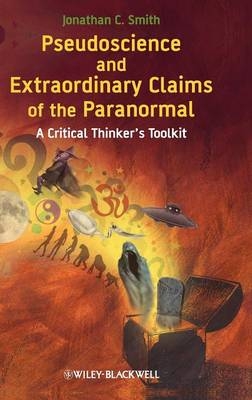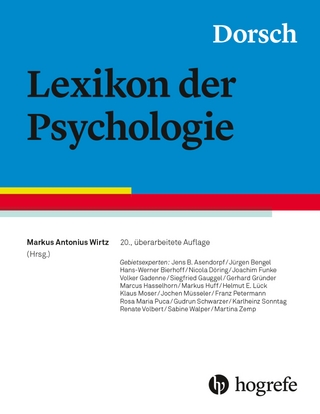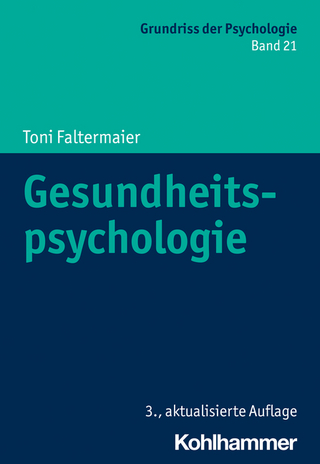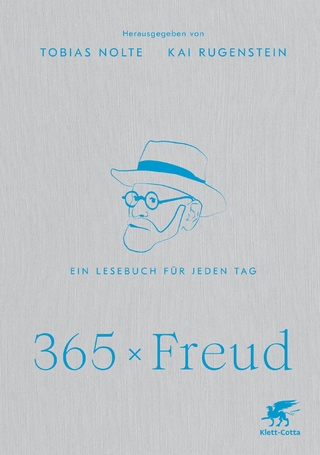
Pseudoscience and Extraordinary Claims of the Paranormal
Wiley-Blackwell (Verlag)
978-1-4051-8123-5 (ISBN)
Pseudoscience and Extraordinary Claims of the Paranormal: A Critical Thinker's Toolkit provides readers with a variety of "reality-checking" tools to analyze extraordinary claims and to determine their validity.
Integrates simple yet powerful evaluative tools used by both paranormal believers and skeptics alike
Introduces innovations such as a continuum for ranking paranormal claims and evaluating their implications
Includes an innovative "Critical Thinker's Toolkit," a systematic approach for performing reality checks on paranormal claims related to astrology, psychics, spiritualism, parapsychology, dream telepathy, mind-over-matter, prayer, life after death, creationism, and more
Explores the five alternative hypotheses to consider when confronting a paranormal claim<
Reality Check boxes, integrated into the text, invite students to engage in further discussion and examination of claims
Written in a lively, engaging style for students and general readers alike
Ancillaries: Testbank and PowerPoint slides available at www.wiley.com/go/pseudoscience
Jonathan C. Smith, Ph.D., is a Licensed Clinical Psychologist, Professor of Psychology at Roosevelt University, Founding Director of the Roosevelt University Stress Institute, and Head of the Pseudoscience and Paranormal Laboratory. Dr. Smith has published 17 books and has written numerous articles on stress, relaxation, meditation, and mindfulness, as well as spirituality and skepticism. In 1984 he founded the Roosevelt University Stress Institute primarily to combat pseudoscience in the field. He has created classroom and online classes specifically designed to teach critical thinking skills and evaluate extraordinary claims of the paranormal.
PART 1: INTRODUCTION Chapter 1: The Continuum Mysteriosum Making Sense out of Mysteries: The Continuum Mysteriosum Extraordinary, Nonparanormal Mysteries An Invitation Chapter 2: Why Study These Things? The Dangers of Unexamined Paranormal Claims The Risk of Paranormal Passion and the Critical Thinker?s Toolkit Eight Reality-Checks: The Critical Thinker?s Toolkit PART II: THE CRITICAL THINKER?S TOOLKIT EVALUATE SUPPORT FOR A CLAIM Chapter 3: Reality Check: Are the Sources Credible? Astrology Questionable Sources The Question of Authority When Experts Get It Wrong An Invitation to Question Chapter 4: Reality Check: Is the Logic Valid and Sound? Basic Logic Informal Logical Fallacies Premises, Logic, and Hypothesis Testing Chapter 5: Reality Check: Are Claims Based on Science: (Observations, Tests, and Theories)? Observations Tests Theories Sagan?s Balance and the FEDS Standard Science and Alternative Hypotheses CONSIDER ALTERNATIVE EXPLANATIONS Chapter 6: Reality Checking for Oddities of Nature and the World of Numbers Probability Estimates and Bias Math Ignorance Coincidences The Clumpiness of Randomness The Law of Very Large Numbers Science and Chance Summary: Psychic Bias Chapter 7: Reality Checking for Perceptual Error and Trickery Top-Down Processes and Perception Manipulations of Magicians and Psychics: The Cold Reading Toolkit Hypnotic Suggestion Enhancers Chapter 8: Reality Checking for Memory Errors Memory Myths What is Memory? Memory Errors Déjà vu The Déjà vu Reality Check Chapter 9: Reality Checking for the Placebo Effect What are Placebos? Weak and Strong Placebos Is the Placebo Effect Real? Underlying ?Placebogenic? Mechanisms Placebos and Superstitious Beliefs Placebo Controversies Placebos and Performance Chapter 10: Reality Checking for Sensory Anomalies and Hallucinations Sensory Phenomena Migraines Tunnel Experiences Hallucinations Hallucinations and the Critical Thinker?s Toolkit PART 3: THE PARANORMAL FILES Chapter 11: Spiritualism and the Survival Hypothesis History of the Spiritualist Movement Impact of Spiritualism Spiritualism Today Research on Life after Death Research on Channeling and Mediums Conclusion Chapter 12: Parapsychology The Language of Parapsychology Research on PSI Conclusion: The State of PSI Research Chapter 13: Energy Treatments and Complementary and Alternative Medicine (CAM) Contemporary Views of Energy: The Scientific Perspective Concepts of Energy in Children and Western History: Vitalism Chinese History and Energy: The Yin-Yang School Chinese Energy Treatments Western Energy Treatments Conclusion Chapter 14: Supernatural Cures and Faith Healing The Varieties of Healing Experience The Evidence Chapter 15: Creationism, Intelligent Design, and God Great Debate Things Great and Small Chapter 16: The Reality Checkup: Using your Toolkit The Reality Checkup How to Carry on a Civilized Discussion about the Paranormal Parting Words: The Paranormal Challenge APPENDIX A: Complementary and Alternative Medicine APPENDIX B: Critical Thinking and Paranormal Resources APPENDIX C: Susan Blackmore on Paranormal Research
| Verlagsort | Hoboken |
|---|---|
| Sprache | englisch |
| Maße | 160 x 236 mm |
| Gewicht | 735 g |
| Themenwelt | Geisteswissenschaften ► Psychologie ► Allgemeines / Lexika |
| Geisteswissenschaften ► Psychologie ► Angst / Depression / Zwang | |
| Geisteswissenschaften ► Religion / Theologie ► Weitere Religionen | |
| ISBN-10 | 1-4051-8123-0 / 1405181230 |
| ISBN-13 | 978-1-4051-8123-5 / 9781405181235 |
| Zustand | Neuware |
| Haben Sie eine Frage zum Produkt? |
aus dem Bereich


